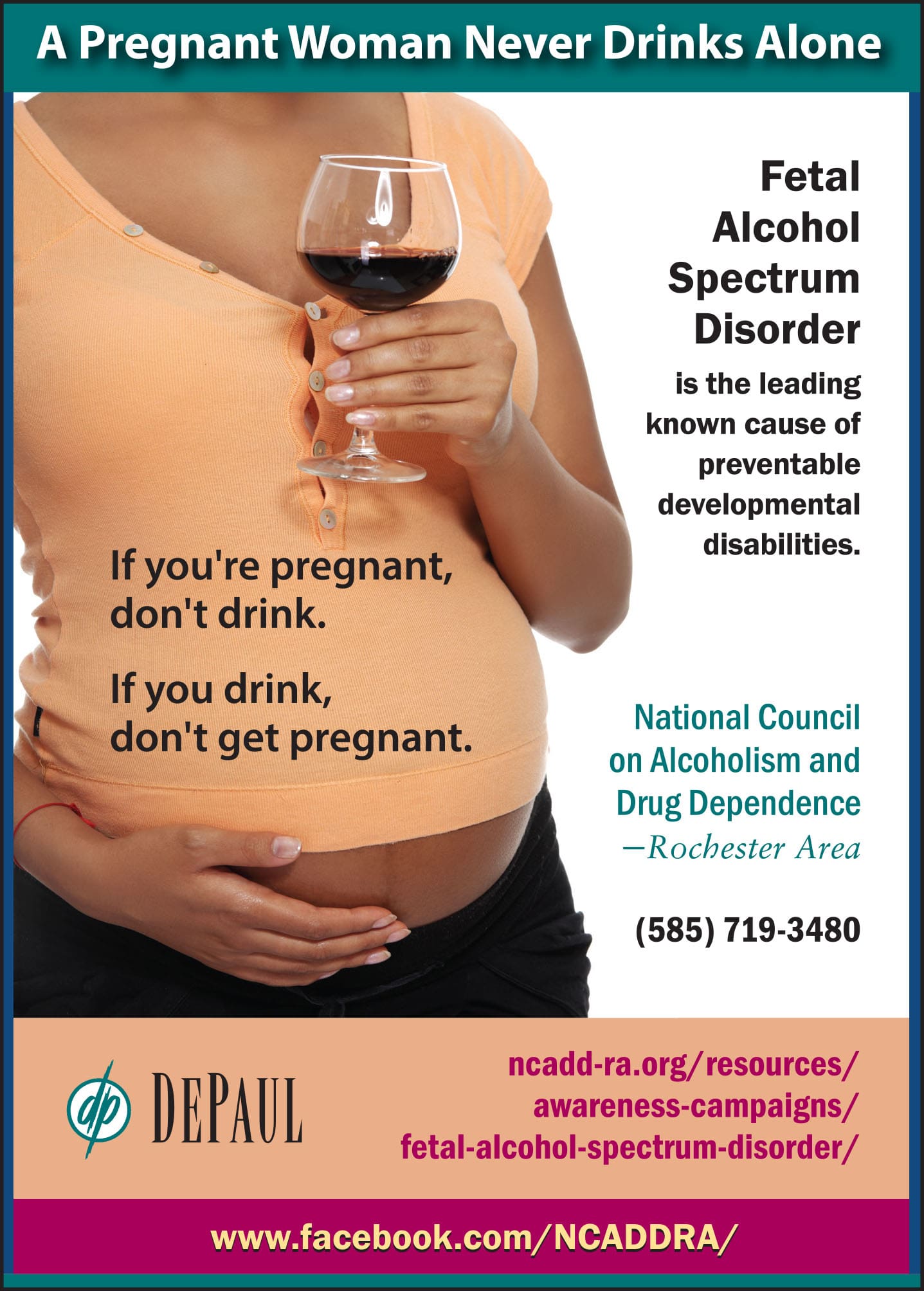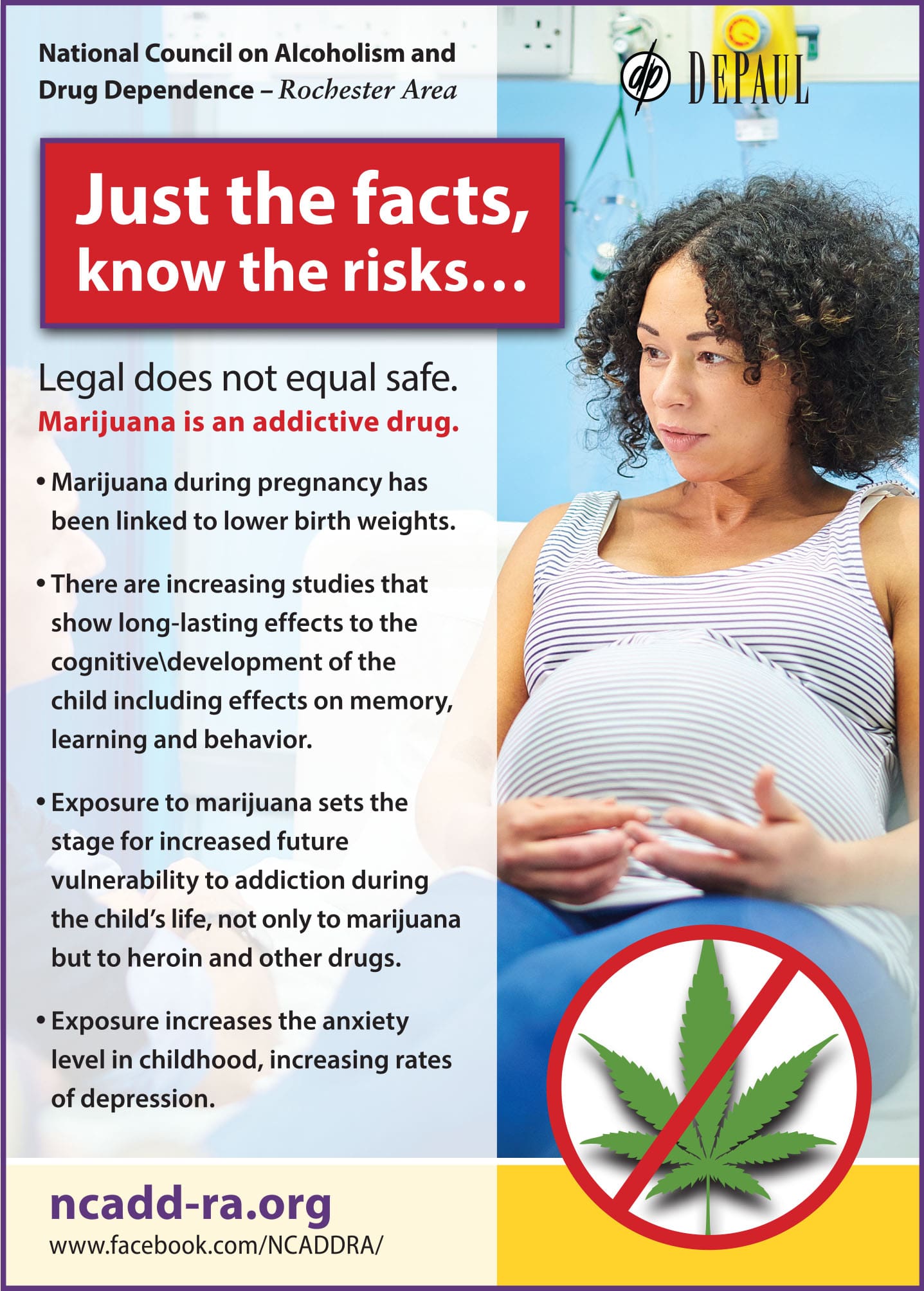Consider a Drug-Free Pregnancy for a Healthy Baby
By Jennifer Faringer, MS. ED., CPP-G
Fetal Alcohol Spectrum Disorder (FASD) Month in September is an opportunity to raise awareness of the negative impact alcohol use has on an unborn child during pregnancy.

What do we know about alcohol’s impact on the unborn child?
We know alcohol use during pregnancy is the leading cause of preventable cognitive and developmental delays in the developing fetus. It is important to recognize that all alcoholic beverages are harmful, that binge drinking is especially harmful, and that there is NO safe level of drinking during pregnancy. As reported by the Institute of Medicine to Congress back in 1996 “of all the substances of abuse, alcohol produces by far the most serious neurobehavioral effects in the fetus.”
What is the impact?
Fetal Alcohol Spectrum Disorder impacts one in 20 babies in the United States which is over two times more than autism. In New York State, an estimated 11,000 babies would fall within the spectrum of FASD. This number exceeds the current diagnostic capacity in the State. It is estimated that 90 percent of children with FASD will develop co-morbid mental health conditions. Without early diagnosis and support, students with FASD experience a higher-than-average school failure rate. Raising a child with FASD costs 30 times more than preventing it, with collective expenses—health care, special education, residential care, lost productivity, and corrections—totaling an estimated $12 billion annually.
What are protective factors?
There is no acceptable safe level of drinking during pregnancy. Early identification is important to ensure that needed intervention services and supports are put into place to prevent the development of any secondary disabilities. The Rochester area is fortunate to have one of the few statewide diagnostic clinics in the region at the University of Rochester FASD Diagnostic and Evaluation Clinic.
What about marijuana use?
In addition to alcohol, research is coming out regarding the negative impact of marijuana use during pregnancy. With the legalization of recreational use, the prevalence of use among pregnant women has increased. Between 2002 and 2020, reported use rose significantly with use in first trimester up from 6.3 percent to 16 percent; use in second trimester up from 1.9 percent to 4.2 percent, and use in third trimester up from 2 percent to 4.7 percent.

Outcomes of marijuana use on the unborn child include neurological deficits, neurobehavioral effects, and lower birth weight, which is similar to the potential impacts of alcohol use during pregnancy. A study from the University of Maryland found that prenatal exposure to Tetrahydrocannabinol (THC), one of the active cannabinoids that produces the high, increases the sensitivity to THC in pre-adolescent years. This increases the vulnerability of the child to develop an addiction in adolescence and can also increase the anxiety levels and rates of depression in childhood.
Ensure the healthiest outcome for your baby, and refrain from the use of alcohol, marijuana, tobacco, and other harmful drugs during pregnancy. To learn more about FASD visit the National Council on Alcoholism and Drug Dependence – Rochester Area’s (NCADD-RA) website at www.ncadd-ra.org, or to schedule a presentation on FASD, contact [email protected].